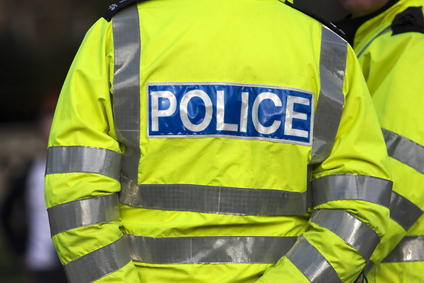One minute of combat causes impaired memory
By William Smith
A new study has found that just sixty seconds of physical exertion in a combative or threating situation is all  it takes to damage the memories of the event.
it takes to damage the memories of the event.
The researchers say that anyone involved in such an incident can be affected. Victims and witnesses of crime and the police officers involved can fall foul to memory loss, awareness of their environment and recognition if they have had a burst of physical energy in a combative situation.
The study was led by Dr. Lorraine Hope from the University of Portsmouth. Hope and her researchers found that memories of an incident which could last for as short a time as 60 seconds, in which a police officer might have to use exertion was enough to seriously hamper their ability to recall details of the incident or to be able to identify the person involved. Situations such as a police officer chasing a criminal can cause even policemen in top condition to a rapid drain of physical strength and cognitive faculties.
Dr. Hope feels that the findings should come as a stark warning to the police and the courts. ‘Police officers are often expected to remember in detail who said what and how many blows were received or given in the midst of physical struggle or shortly afterwards. The results of our test indicate it may be very difficult for them to do this,’ she said.
‘As exhaustion takes over, cognitive resources tend to diminish. The ability to fully shift attention is inhibited, so even potentially relevant information might not be processed. Ultimately memory is determined by what we can process,’ Hope added. ‘The legal system puts a great deal of emphasis on witness accounts, particularly those of professional witnesses like police officers. Investigators and courts need to understand that an officer who cannot provide details about an encounter where physical exertion has played a role is not necessarily being deceptive or uncooperative. An officer’s memory errors or omissions after an intense physical struggle should not unjustly affect his or her credibility.’
For the study volunteer police officers were recruited. There were a total of 52 participating officers of which 42 were male and 10 were female. Research was conducted in Canada by a research team which comprised of researchers from University of Portsmouth, Canada, The Force Science Institute and specialists from the Metropolitan Police from here in the United Kingdom.
All of the participating officers had to be fit and healthy and they all took regular exercise. They were given an initial briefing which gave them details of a spate of recent city robberies. Background information included details of how the robberies were carried out and descriptions of the perpetrators which had been obtained from witnesses to the crimes.
After the briefing, half of the officers then took part in a physical attack on a 300ob hanging water bag. The attack was full force and the officers could choose their preferred ‘assault movements’. The officers used punches, kicks and/or palm, elbow and knee strikes in the attack on the bag. During the bag attack they were spurred on by trainers and they kept going until they had no more strength to carry on with the fight.
After this, all of the officers were asked to go into a trailer that a ‘known criminal’ was thought to occupy. On the way to the trailer the officers briefly encountered an individual.
The trailer was a realistic living area with a number of weapons in it and they were all visible to the officers. After entering the trailer the ‘known criminal’ came in from another room and shouted at the officers to get out. The criminal was not armed but could easily reach the weapons in the room.
The researchers found that the officers who had previously exerted themselves on the water bags could remember less about the criminal who had entered the room than the officers who had not participated the physical exertion. The officers who had been exerted also remembered less of the initial briefing and what they could recall was less accurate. 90% of the officers who had not been exerted could remember at least one description of the individual which they had encountered on the way to the trailer whereas only one-third of the exerted officers could remember seeing him at all.
Everyone in the group could recall seeing the criminal in the trailer, however, the non-exerted officers could give a considerably more accurate description of him and they were twice as likely to have been able to identify him in a line-up.
The full findings of the research can be found in the publication Psychological Science.





